How Bezos’ “Day 1 Thinking” can save your company’s life.

For Bezos, Day 1 Thinking is a startup mentality. It means rejecting stagnancy and embracing change.
Everything from day-to-day details to company values has to be changeable, dynamic, and fast.
“Day 1 is both a culture and an operating model that puts the customer at the center of everything Amazon does … Day 1 is about being constantly curious, nimble, and experimental.”
Daniel Slater, Worldwide Head of Culture of Innovation at AWS
It started with his 1997 shareholder letter and is now the company culture at Amazon.
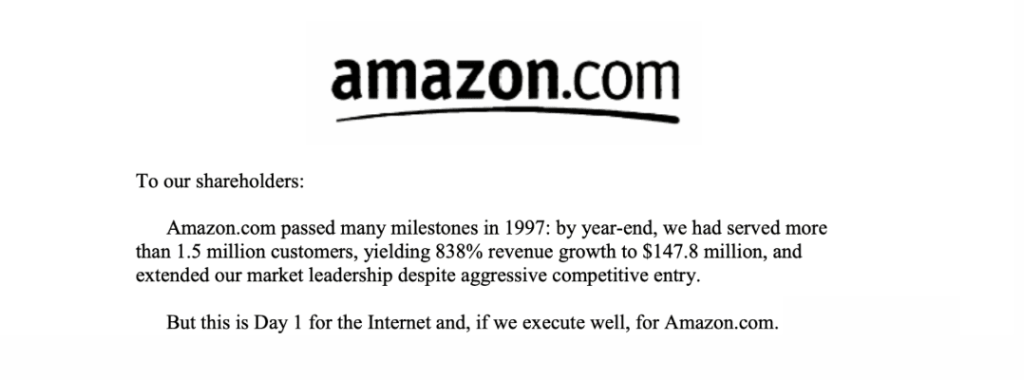
The 3 Tenants of Day 1 Thinking
1 – Customer Obsession
Bezos puts customer needs first. AWS claims that ≈90% of the new features come directly from customer feedback.
Bezos: “We are internally driven to improve our services, adding benefits and features, before we have to … We invent before we have to.”

2 – High Velocity Decision-Making
All companies want to make the best decisions, but speed matters too. This becomes increasingly more difficult as companies scale.
Bezos’s 2 tricks to high-velocity decision-making:
- “Two-pizza teams” – teams that are small enough to be fed with two pizzas are dynamic and single-minded. They avoid needless bureaucracy and make decisions quickly.
- “Two-door decisions” – decisions that can be easily walked back shouldn’t be endlessly deliberated on. Make quick decisions with the knowledge they can be changed later.
3 – Embrace External Trends
Day 1 Thinking encourages constant iteration, innovation, and experimentation.
Bezos: “Staying in Day 1 requires you to experiment patiently, accept failures, plant seeds, protect saplings, and double down when you see customer delight.”
This external awareness helps the company remain adaptable and responsive to changing landscapes. But it’s important to avoid proxies – metrics that sound positive but lack real meaning.
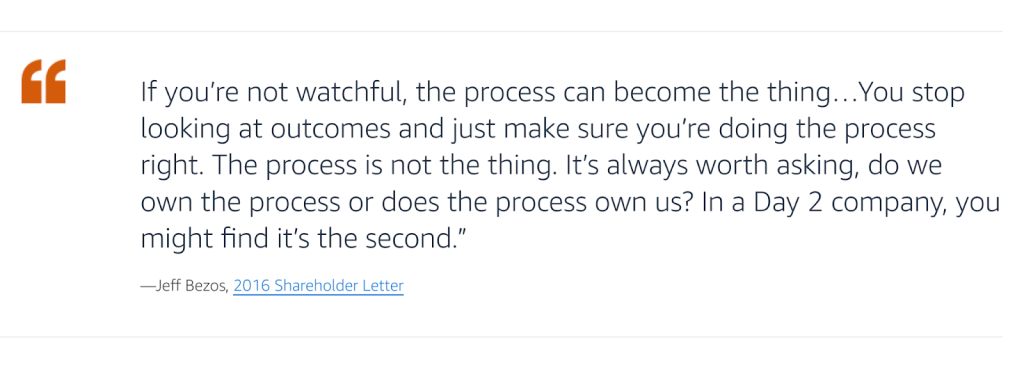
Dangers of Day 2 Thinking
As decision-making slows, a company becomes less agile.
It moves away from a customer-centric mentality and towards internal pressures and metrics. It’s stagnation and complacency.
And it leaves you completely unprepared for industry disruption. It’s the difference between Nikon and Netflix adapting to the internet age.
Adaptability is priceless.



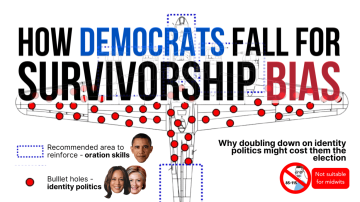




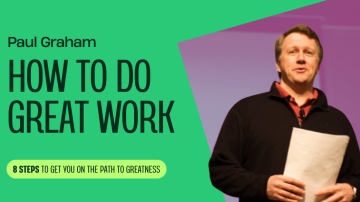
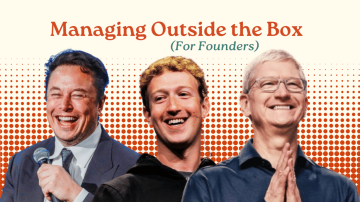
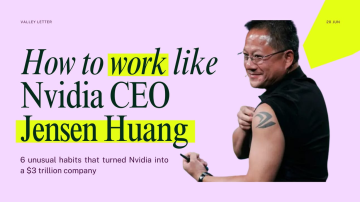
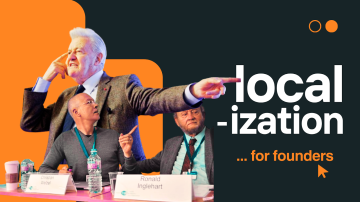

W500casinologin, heard this name mentioned in some forums. Guess it must be popular enough to be talked about. Login experience is smooth apparently w500casinologin.
Alright gamers, gave play.hit 8.club a spin. Honestly, the graphics are pretty slick! Gameplay is smooth too, worth checking out for a few rounds if you’re bored. Head over to play.hit 8.club
My experience with 77ph1 has been absolutely spectacular. The game selection is huge which keeps it interesting for me. This is where I had a bunch of luck! Good luck all! 77ph1.